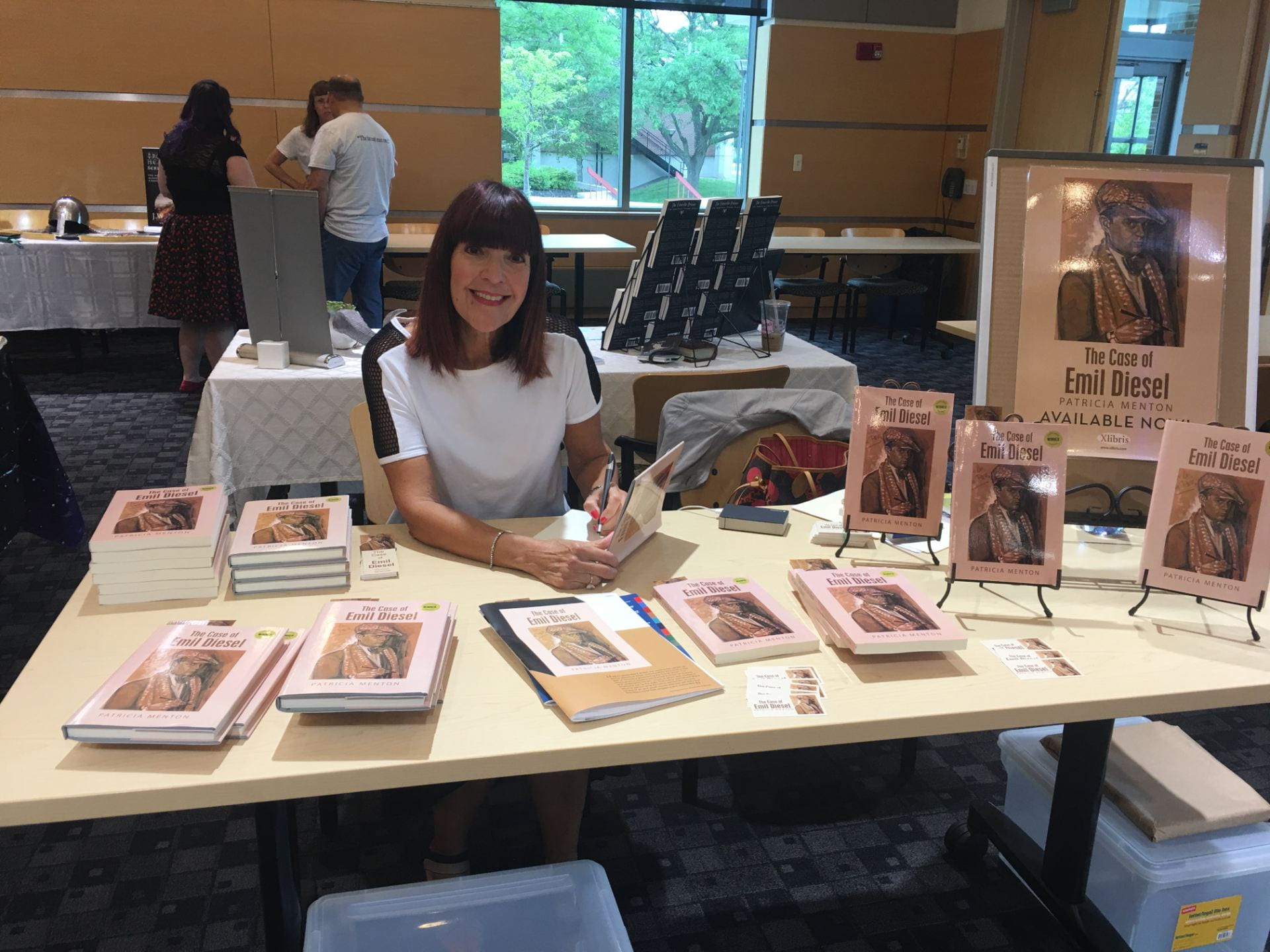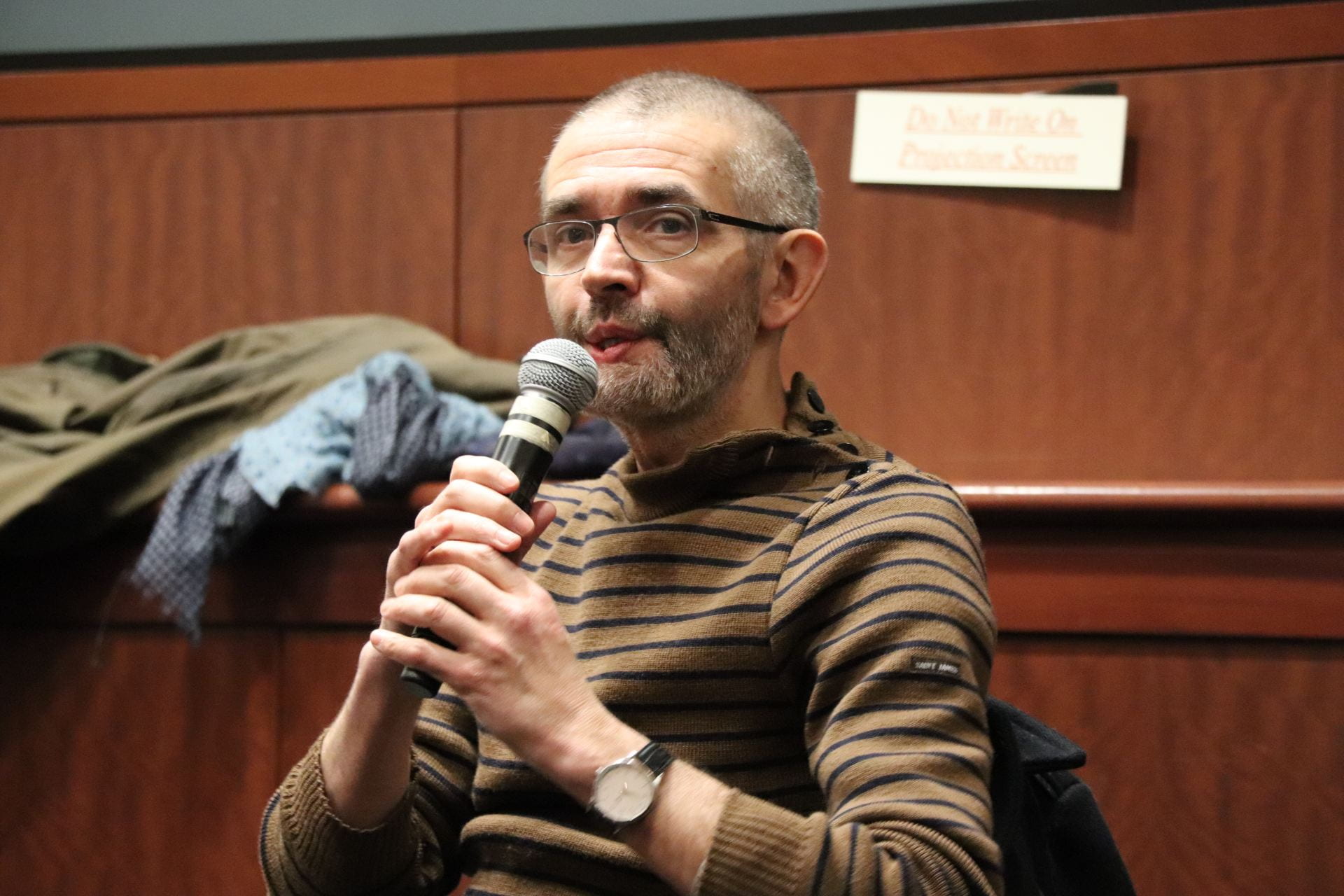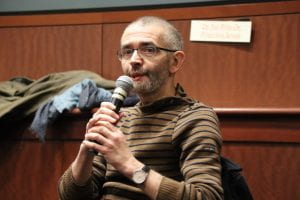 When Patricia Scangas graduated from GW’s Elliott School in 1972, she little suspected how – or when – she would have the opportunity to work in global affairs. Her family was traditional, especially her father, and expected her to settle down close by.
When Patricia Scangas graduated from GW’s Elliott School in 1972, she little suspected how – or when – she would have the opportunity to work in global affairs. Her family was traditional, especially her father, and expected her to settle down close by.
Fast forward to 2004, when Scangas and her husband, Matthew, set off on what became a 10-year journey – part travel, part diplomatic mission, part legal drama. Scangas takes the reader along with her in her debut novel, The Case of Emil Diesel, under the pen name, Patricia Menton. We caught up with Scangas last month, and she brought us up to date on her book, which, she says, took her full circle to the study of global affairs.
What is this book about?
It’s about actual events in East Germany – where my husband was born and spent his early childhood. His father had an amazing collection of antique art objects from around the world. In the midst of the Cold War, when the East German government badly needed cash, officials confiscated private art collections, on the pretense of collecting taxes and sold the art to the West. This is what happened to my husband’s father – Emil Diesel in the book. He died in 1975, shortly after the government seized his collection.
Then what happened?
For a long time nothing happened. Then in 2004, a family member sent us a book about victims of art theft, including my husband’s father. We set off to look for and reclaim parts of the stolen collection. We had no idea of the challenges we would encounter along the way.
Does the story have a happy ending?
Read the book – it is all there.
When you began this journey, did you plan to write a book about it?
Yes and no. Ever since the 1990s, I have felt a strong urge to write. During our many trips to East Germany, in museums and courtrooms, I took notes on everything that happened. Things finally came together when I heard about a class at our local community college called “From First Word to First Draft.” I jumped in and decided I would write the book – as fiction, based on these real-life events and characters.
How long did it take you?
Twelve weeks. I just sat down at the computer and began to write.
Wow! That’s fast.
It was all there in my notes. I did do some additional research.
How about publication?
I sent the manuscript to probably 50 agents. When I did get a reply, it was usually “make these changes and send it to us again.” I rewrote the story so many times that I started to feel as if I was losing the thread. Finally, I found Xlibris, and it turned out they were wonderful in the editing process. They’ve helped with publicity and gave me good ad coverage in the book review section of the Sunday New York Times. Still, I spend most of my time promoting my book.
How do you feel about this?
It’s okay! The important thing is that I had a chance to tell this story. I realize, too, that I ended up using my Elliott School education after all.
What’s next for you?
Pitching the book to Hollywood producers, working on a romance novel I’ve begun, and possibly writing a sequel to Emil Diesel to bring the story up to the present. It was an incredible journey, and it’s not over yet.



